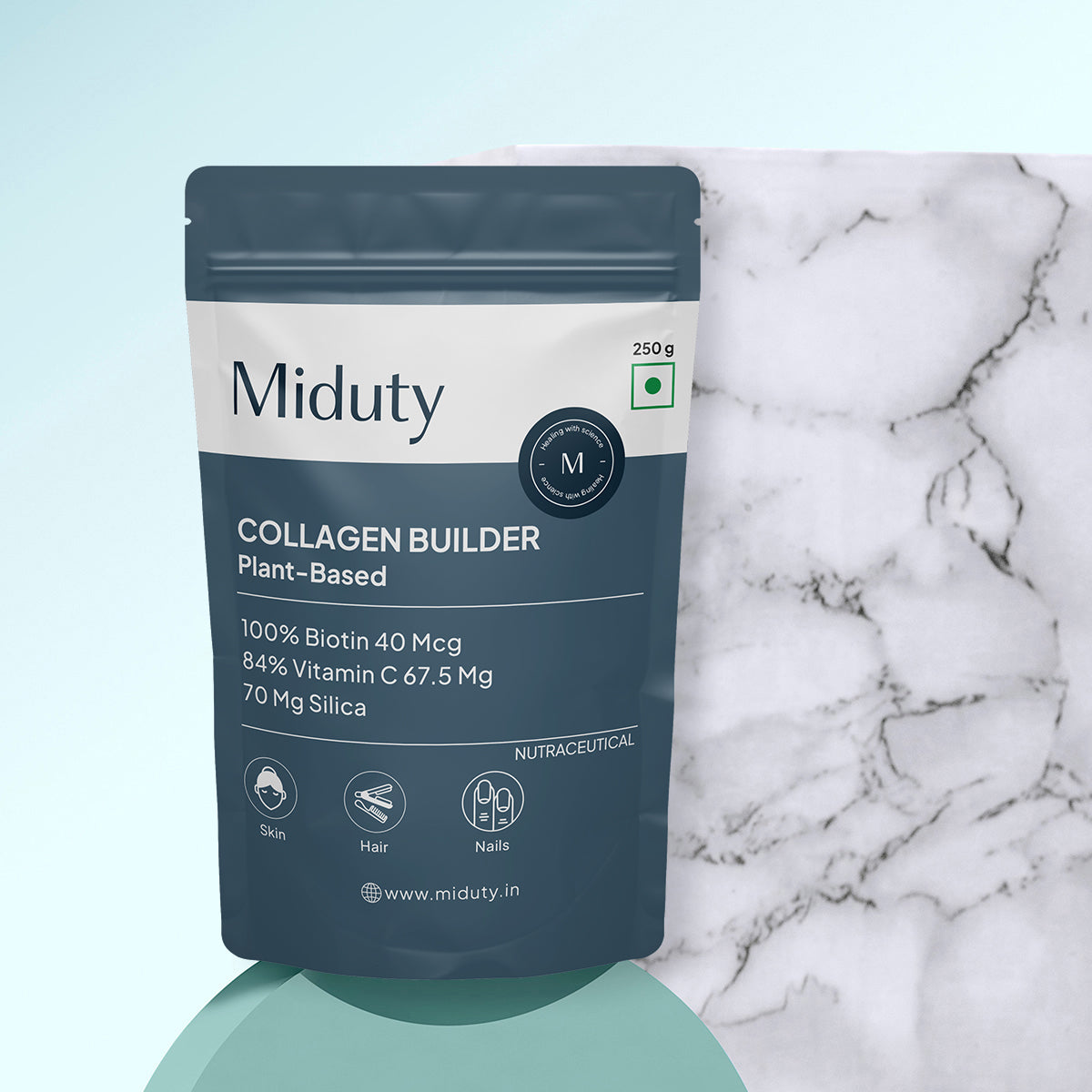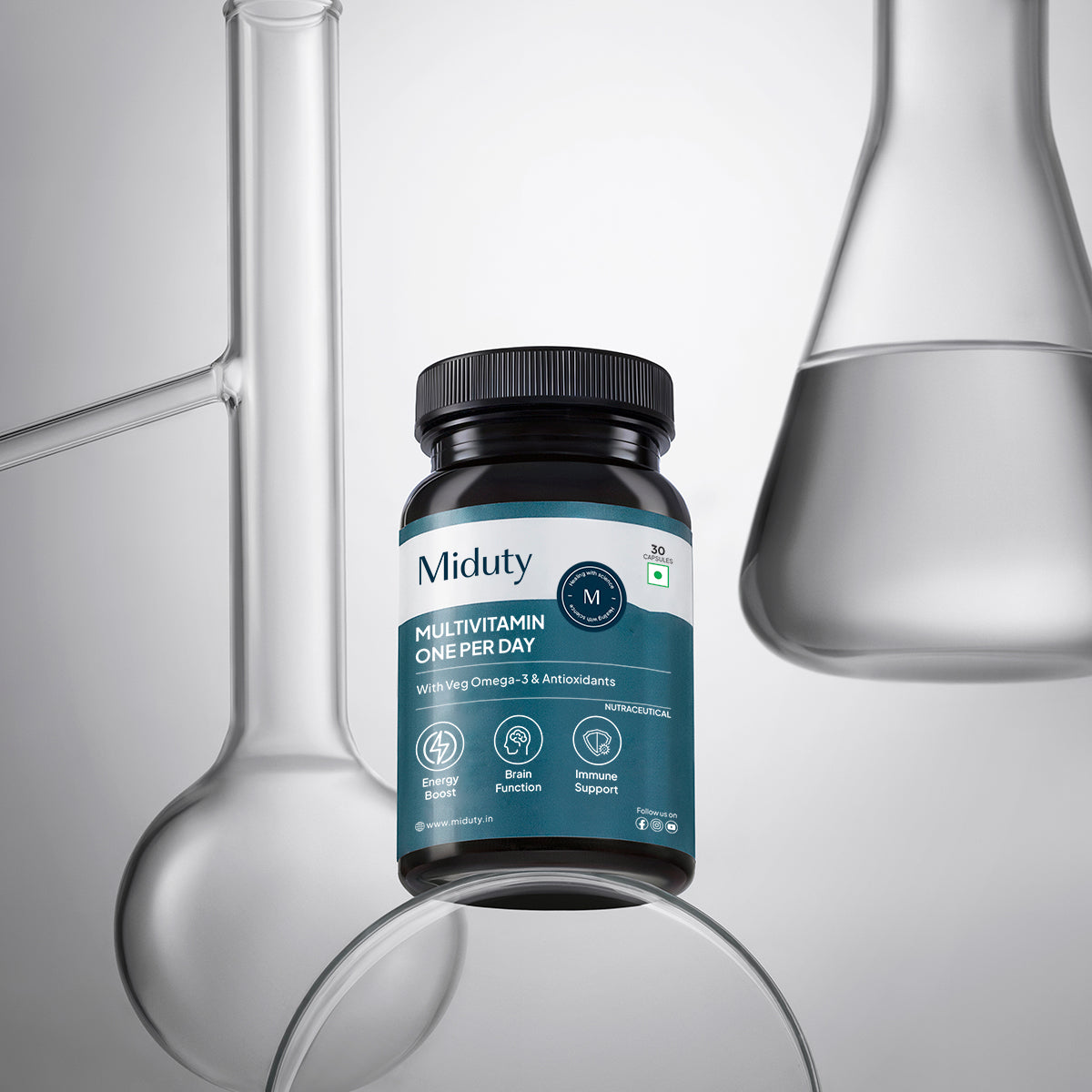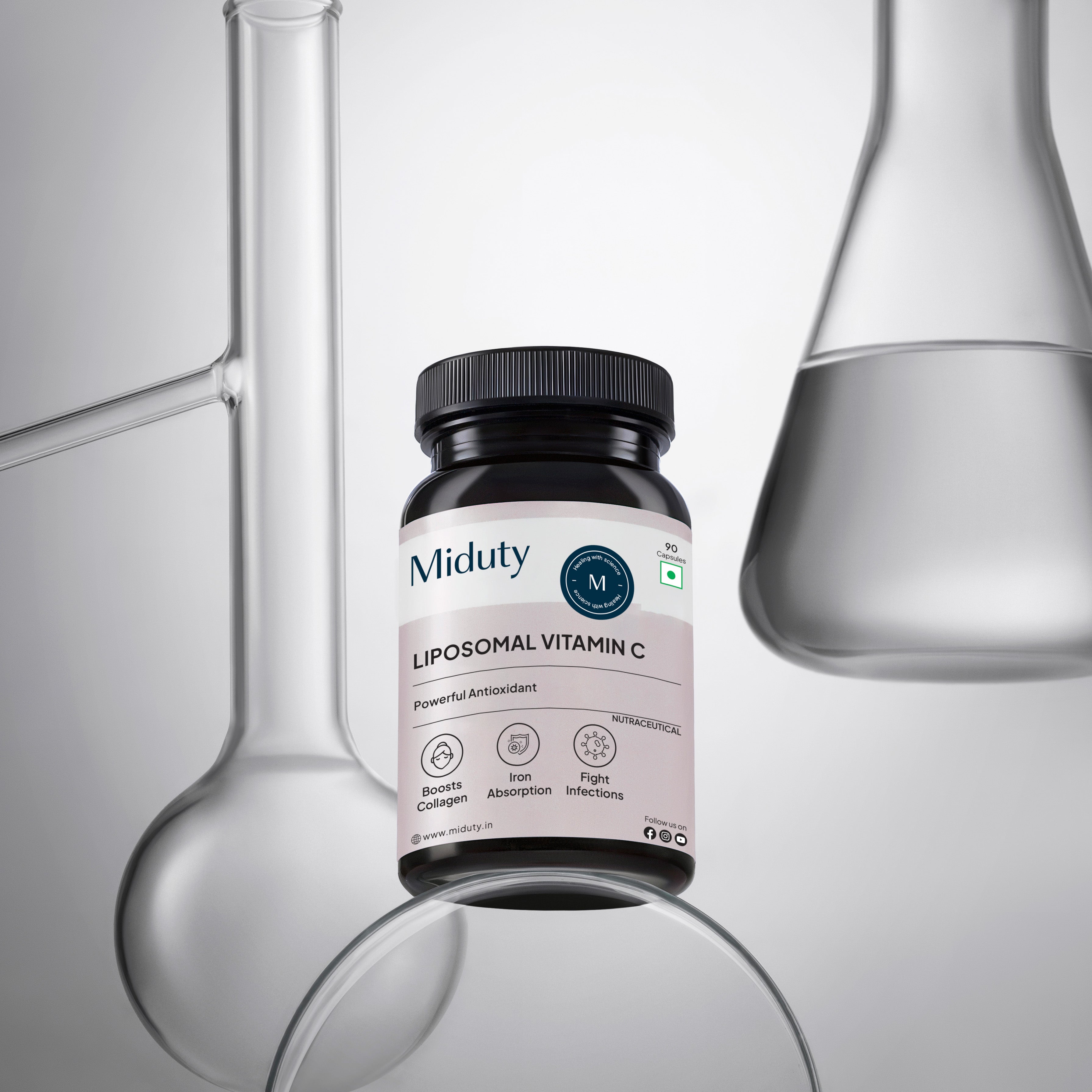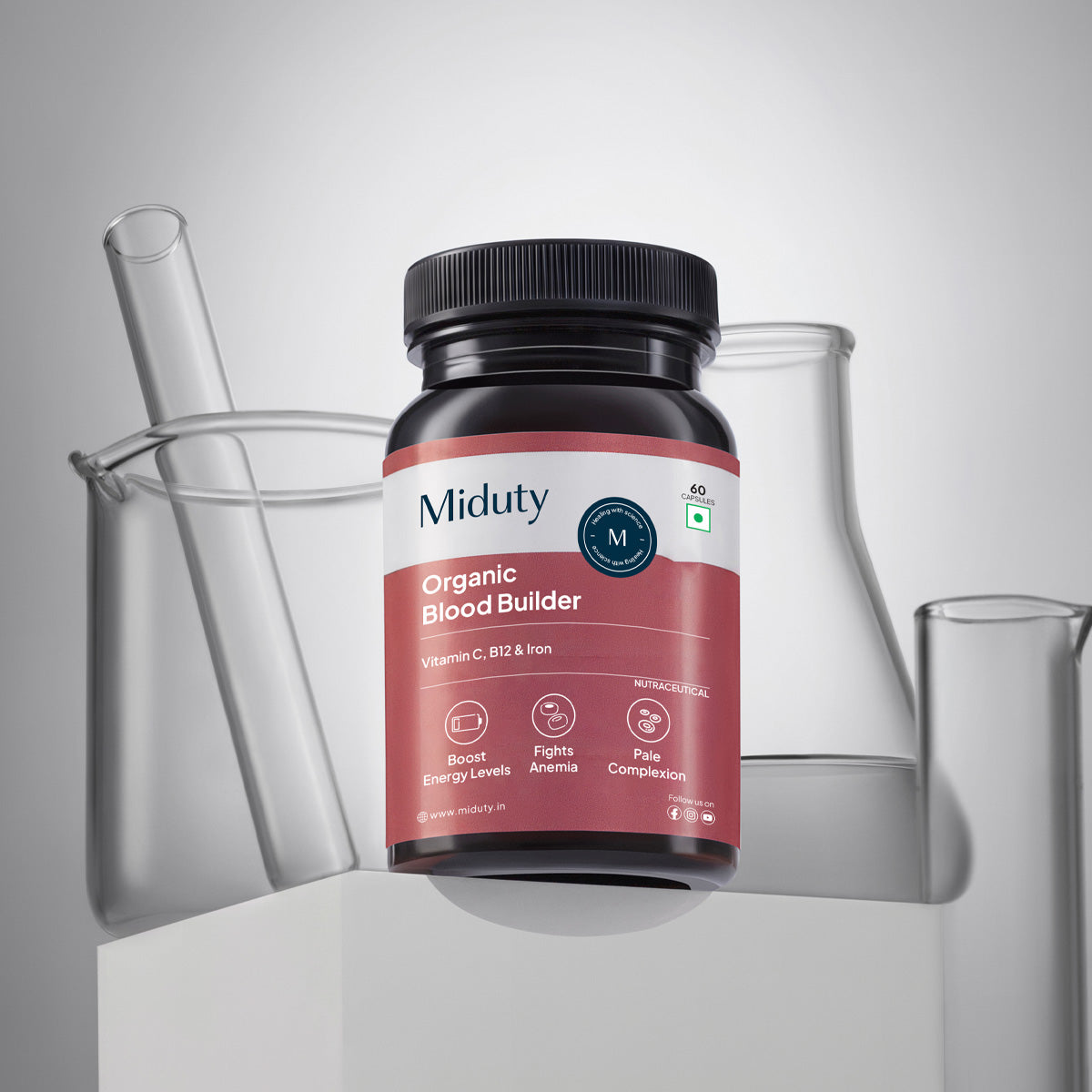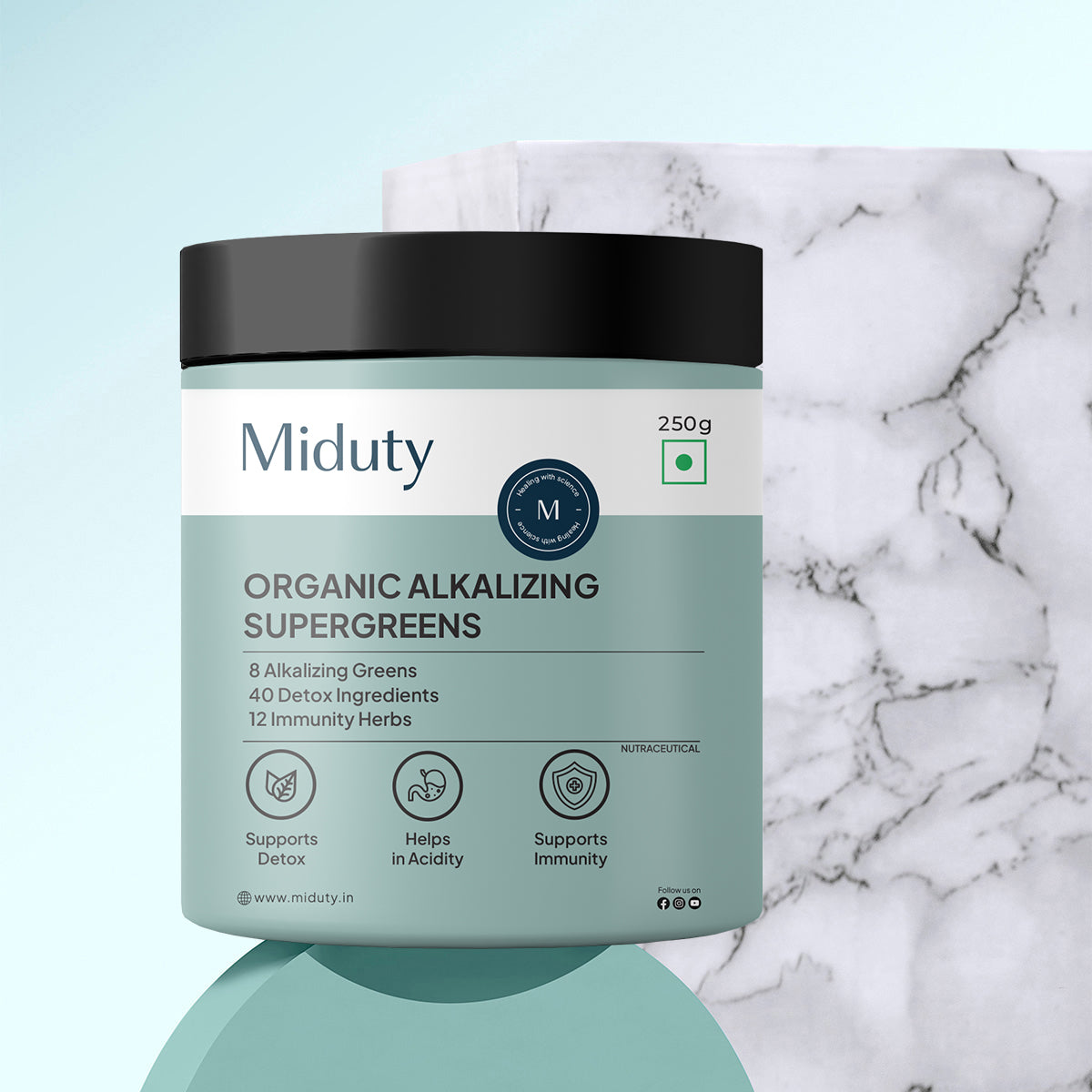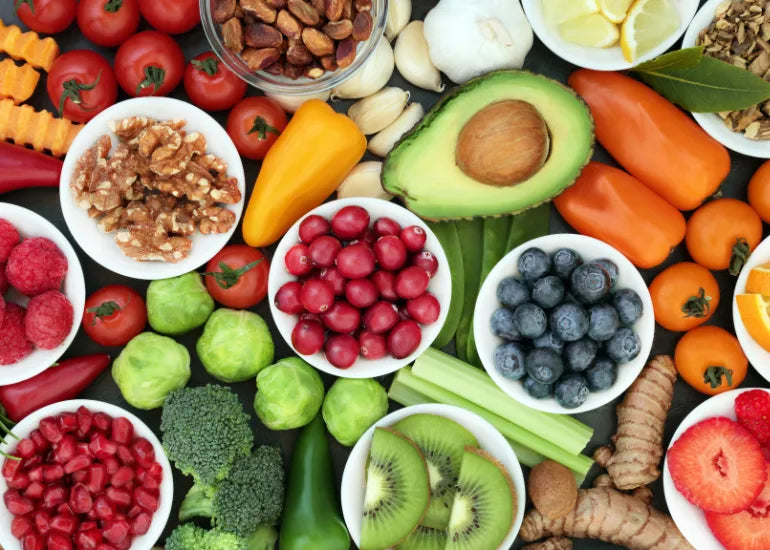
Collagen-Rich Vegetarian Foods and Superfoods
Key Takeaways:
1. Plants Don't Contain Collagen, But They Build It!: While only animal foods have collagen, vegetarian superfoods like vitamin C-rich fruits, leafy greens, nuts, seeds, and legumes give your body the raw materials to make collagen naturally.
2. Vitamin C is the ultimate collagen booster: Citrus fruits, berries, kiwi, guava, and bell peppers are essential because vitamin C is a cofactor in collagen synthesis and protects collagen fibers from damage.
3. Minerals Matter Too: Zinc from pumpkin seeds, copper from mushrooms, and antioxidants from sunflower seeds are vital for stabilizing and strengthening collagen fibers.
4. Leafy Greens = Collagen Powerhouse: Spinach, kale, and chlorophyll-rich greens support collagen precursors, help protect and strengthen collagen at the cellular level.
5. Supplements Can Fill the Gaps: Plant collagen builder supplements with amino acids, vitamin C, zinc, copper, and herbs like sea buckthorn and rose petals can naturally stimulate your body's collagen production without animal products.
Collagen is the most abundant protein in the human body, acting like the glue that holds everything together. It makes up a huge part of your skin, hair, nails, bones, muscles, tendons, and even blood vessels. Without collagen, our skin would sag, our joints would ache, and our hair and nails would become brittle.
There are different types of collagen, but the most common ones (Type I, II, and III) are the ones that keep your skin smooth, your joints flexible, and your bones strong. While the body can make collagen naturally, production starts to slow down as we age, especially after the age of 25. This explains why wrinkles, joint stiffness, and weaker hair become more common with age.
Most collagen supplements available on the market come from animal sources like fish, chicken, or beef. But what about vegetarians who want to boost their collagen levels without consuming animal products? Let's look at the vegetarian sources of collagen.
What are collagen-rich foods?
Collagen-rich foods are those that either contain collagen directly (like animal-based sources such as bone broth, chicken skin, fish, and beef) or help the body produce collagen naturally by supplying essential amino acids, vitamins, and minerals.
For non-vegetarians, foods like bone broth, fish skin, chicken, and egg whites are direct sources of collagen. [1][2]
For vegetarians and vegans, collagen is not found in plants, but many foods act as collagen boosters by providing the building blocks your body needs. These include: Vitamin C-rich fruits, Protein-rich plant foods, Leafy greens, Nuts and seeds, Superfoods. So, collagen-rich foods are either direct animal-based sources or plant-based foods that supply the raw materials your body uses to build collagen naturally. [3][4]
Vegetarian Foods that boost Collagen

1. Fruits Rich in Vitamin C (Citrus, Berries, Kiwi, Guava)
Fruits are the ultimate collagen boosters because they're naturally packed with vitamin C, antioxidants, and hydration. These are essential for collagen synthesis and protecting collagen fibers from damage.
- Citrus fruits like oranges, lemons, and grapefruits are classic collagen supporters. [5]
- Berries such as strawberries, blueberries, and raspberries not only provide vitamin C but also anthocyanins, powerful antioxidants that prevent collagen breakdown. [6]
- Kiwi is surprisingly higher in vitamin C than oranges and also provides vitamin E.
- Guava is a hidden gem, loaded with vitamin C, folate, and dietary fiber that help collagen production.
2. Leafy Greens (Spinach, Kale)
Leafy greens are often called "superfoods," and when it comes to collagen production. These greens are rich in vitamin C, chlorophyll, magnesium, and antioxidants that all play a part in collagen formation and protection.
- Spinach provides vitamin C and iron, which supports healthy blood circulation and ensures nutrients reach your skin and tissues.
- Kale is loaded with vitamin K, antioxidants, and calcium, all of which keep bones and connective tissues strong.
Another bonus is chlorophyll, the green pigment in plants. Studies suggest that chlorophyll helps increase collagen precursors in the skin, making your skin firmer and reducing signs of aging. Adding a handful of leafy greens to your smoothie or cooking them lightly with garlic and olive oil is an easy way to make them a collagen-boosting staple in your diet.
3. Nuts and Seeds (Chia, Flax, Pumpkin, Sunflower)
Nuts and seeds are rich in protein, healthy fats, zinc, copper, and vitamin E all of which contribute to collagen production and protection.
- Chia seeds and flaxseeds provide plant-based omega-3s, which help reduce inflammation and protect collagen.
- Pumpkin seeds are one of the good vegetarian sources of zinc.
- Sunflower seeds supply vitamin E, an antioxidant that shields collagen from damage.
Adding a handful of mixed seeds to your morning smoothie, oatmeal, or salad is an easy way to boost collagen naturally.
4. Legumes (Beans, Lentils, Chickpeas)
Legumes are a powerhouse when it comes to collagen support. They're rich in protein, giving your body essential amino acids like glycine and proline, which are the foundation of collagen. In addition, legumes contain zinc and copper, two minerals that play a direct role in collagen synthesis.
- Lentils are versatile and can be added to soups, salads, or curries.
- Chickpeas make a great snack when roasted or can be blended into hummus.
- Black beans and kidney beans pair well with rice to form a complete protein.
The fiber in legumes also promotes gut health, which indirectly supports collagen since a healthy gut improves nutrient absorption. Eating legumes 3-4 times a week can significantly enhance the collagen-building potential in a vegetarian diet.
Vegetarian Superfoods That Naturally Support Collagen Production

1. Avocado and Its Healthy Fats
Avocado is rich in vitamin E, vitamin C, and healthy monounsaturated fats that keep your skin supple and protect collagen from oxidative damage. The healthy fats in avocados help absorb fat-soluble vitamins like A, D, and E, which are all essential for maintaining skin health and structure. Additionally, avocados contain glutathione, a powerful antioxidant that slows down collagen breakdown and supports detoxification in the body. [7]
Adding half an avocado to your salads, smoothies, or toast will help you maintain strong collagen levels over time.
2. Mushrooms as a Source of Copper
Mushrooms are a rich vegetarian source of copper, one of the key minerals required for collagen production. Copper activates enzymes that cross-link collagen and elastin, ensuring tissues remain strong and flexible. Mushrooms also provide antioxidants, vitamin D, and selenium, which work together to protect collagen from damage. Cooking mushrooms with olive oil and garlic or adding them to soups and stir-fries is a tasty way to make them part of your collagen-friendly diet. [8][9]
3. Bell Peppers and Their Antioxidant Power
Bell peppers, especially red, yellow, and orange are incredibly high in vitamin C, making them one of the best foods for collagen synthesis. They also contain capsaicin, which has anti-inflammatory properties, and carotenoids, which act as antioxidants that protect collagen from free radical damage. Eating bell peppers raw in salads or lightly sautéed ensures maximum vitamin C retention. [10]
4. Sweet Potatoes and Carotenoids
Sweet potatoes are packed with beta-carotene, a plant compound that the body converts into vitamin A. Vitamin A plays a crucial role in repairing skin tissues and stimulating new collagen growth. Beta-carotene also protects skin from UV damage, which is one of the leading causes of collagen breakdown. Roasted sweet potatoes, or even mashed sweet potatoes are excellent additions to a collagen-boosting vegetarian diet.
Should I try a collagen supplement?
While vegetarians don't consume collagen directly from animal products, they can rely on collagen builders supplements that contain the necessary nutrients to stimulate the body's natural production. These typically include amino acids like glycine and proline, along with vitamin C, zinc, and copper. [11][12]
Unlike animal-derived collagen powders, plant-based collagen builders provide a blend of nutrients your body needs to make collagen itself. They often include:
- Amino acids (like glycine and proline) - essential building blocks for collagen synthesis
- Vitamin C - a cofactor that helps assemble collagen fibers
- Zinc and Copper - trace minerals that stabilize and strengthen collagen
- Superfood extracts (such as bamboo silica, acerola cherry, or spirulina) - for added antioxidant protection
- Natural Herbs- Sea Buckthorn, Rose Petal and Sesbania Grandiflora leaves.
Unlike animal-derived collagen powders, these plant-based options work by fueling your body with the raw materials to boost its own collagen production.
Signs of Collagen Deficiency
How do you know if your body is running low on collagen? Here are some signs:
1. Skin Changes - Wrinkles, fine lines, dryness, and sagging skin are among the earliest warning signs.
2. Joint Pain - If your knees, hips, or shoulders feel stiff or achy, low collagen may be reducing the cushioning between your joints.
3. Weak Hair and Nails - Breakage, slow growth, and brittleness often signal reduced collagen support.
4. Poor Wound Healing - Collagen plays a crucial role in tissue repair, so cuts and bruises that take longer to heal may point to a deficiency.
5. Digestive Problems - Collagen helps maintain a strong gut lining. Low levels may contribute to leaky gut or digestive discomfort.
6. Fatigue and Weakness - Since collagen is essential for muscle and tendon strength, low levels can lead to weakness or poor recovery after exercise.
Conclusion
Collagen is essential for glowing skin, strong hair, healthy joints, and overall vitality but you don't need meat, fish, or bone broth to boost it. As a vegetarian, you can support collagen production naturally by focusing on plant-based proteins, vitamin C-rich fruits, leafy greens, nuts, seeds, and collagen-boosting superfoods like avocado, mushrooms, and pomegranate.
By combining the right foods with healthy lifestyle habits like staying hydrated, sleeping well, avoiding excess sugar, and protecting your skin from the sun you can maintain strong collagen levels throughout your life.
Whether you choose to stick to whole foods or add a vegan collagen booster, the key is consistency. Nourish your body daily, and your skin, hair, and joints will thank you for years to come.
FAQ's on Collagen-Rich Vegetarian Foods
Q1. Which vegetarian food has the highest collagen?
No, vegetarian food naturally contains collagen, as it is only found in animal sources. But certain vegetarian foods can significantly boost collagen production in the body. Leafy greens, citrus fruits, berries, nuts, seeds, and beans are among the good plant-based options that provide the nutrients needed for collagen synthesis.
Q2. How can I increase my collagen fast?
To boost collagen quickly, focus on a nutrient-rich diet with vitamin C, zinc, copper, and amino acids from sources like citrus fruits, berries, nuts, seeds, beans etc. Supporting your skin with adequate hydration, reducing sugar and processed foods, and using collagen-boosting supplements can also help speed up production. Regular exercise and proper sleep further enhance your body's collagen synthesis.
Q3. Which fruits produce collagen?
Fruits don't contain collagen directly, but many help your body produce it by providing essential nutrients like vitamin C. Top collagen-boosting fruits include oranges, lemons, kiwis, strawberries, papayas, and berries, as their vitamin C content supports collagen synthesis and skin health.
Q4. Is banana high in collagen?
No, bananas do not contain collagen, as it is only found in animal products. However, bananas provide nutrients like vitamin C and manganese that support the body's natural collagen production. They can be a helpful part of a collagen-boosting diet alongside other fruits, nuts, and seeds.
Q5. What to eat to boost collagen in skin?
To boost collagen in your skin, eat foods rich in vitamin C (like citrus fruits, berries, and leafy greens), amino acids (from beans, soy, eggs, or dairy), and minerals like zinc and copper (found in nuts and seeds). Including collagen-supporting foods like tomatoes, garlic, and aloe vera, along with proper hydration, can further enhance skin health and elasticity.
Q6. Does garlic increase collagen?
Yes, garlic can help increase collagen production. It contains sulfur and taurine, which support collagen synthesis, and antioxidants that protect existing collagen from damage. Including garlic regularly in your diet can contribute to healthier, firmer skin.
Q7. Does amla have collagen?
Amla (Indian gooseberry) does not contain collagen itself, as collagen is only found in animal sources. However, it is extremely rich in vitamin C, a key nutrient that helps the body produce collagen naturally, making it excellent for skin, hair, and overall connective tissue health.
Q8. Does beetroot have collagen?
Beetroot does not contain collagen, as collagen is only found in animal sources. However, it is packed with antioxidants and nutrients like vitamin C and manganese that help your body produce and maintain collagen. Including beetroot in your diet can support skin elasticity, firmness, and overall connective tissue health.
References



